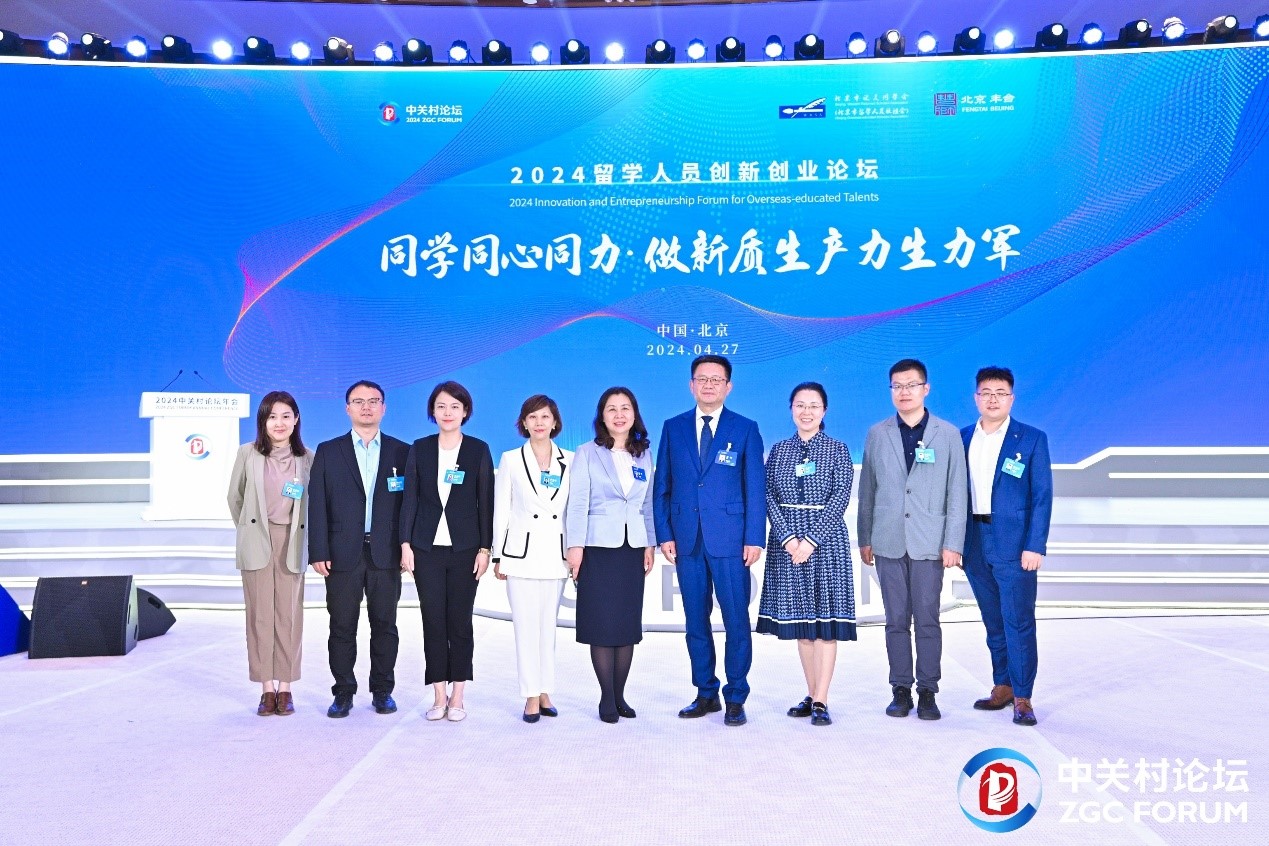Deputy Secretary of CUEB Party Committee Xu Fang Attends 2024 Zhongguancun First Forum on Chinese Returned Scholars Innovation and Entrepreneurship
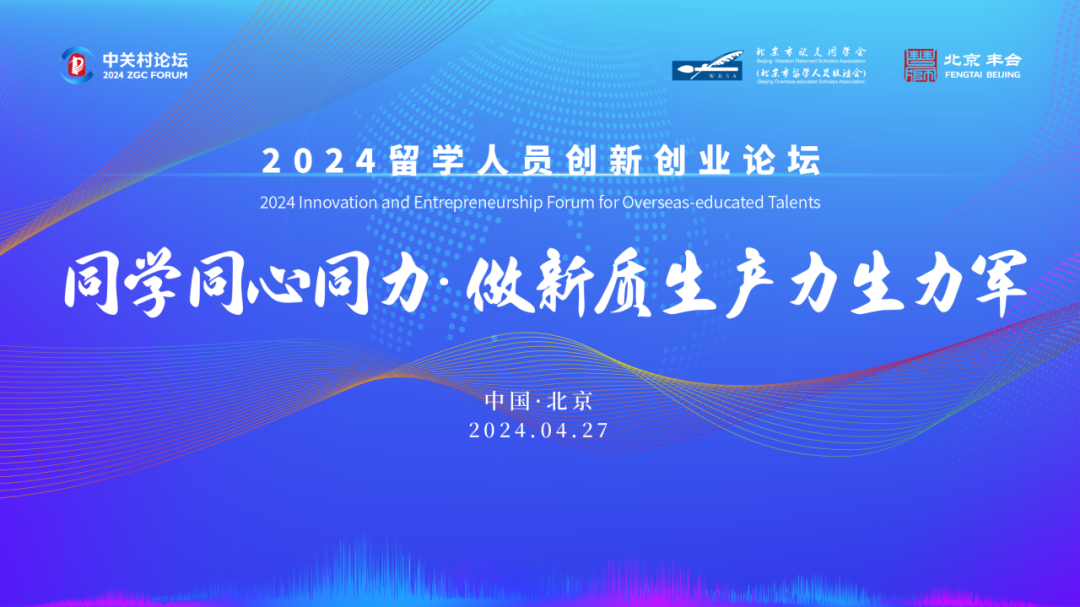
On the afternoon of April 27, 2024 Zhongguancun First Forum on Chinese Returned Scholars Innovation and Entrepreneurship was held at the Haihui Hall within the Zhongguancun International Innovation Center. The forum, themed “Together to be the new productive forces (hereafter the New Forces)”, was jointly organized by the Beijing Western Returned Scholars Association (Beijing Overseas-educated Scholars Association), the Beijing Municipal Bureau of Talent Work, Beijing Fengtai District Committee of Communist Party of China, and Fengtai District People’s Government of Beijing Municipality. Esteemed attendees included Yang Jinbai, member of the Standing Committee of the Beijing Municipal Party Committee and President of the Beijing Overseas Friendship Association; Shi Yigong, academician of the Chinese Academy of Sciences and President of Westlake University; and Wang Shaofeng, Secretary of the Fengtai District Committee. Professor Xu Fang, Deputy Secretary of CUEB Party Committee and Vice President of the China Human Resources Development Association, delivered a keynote speech.
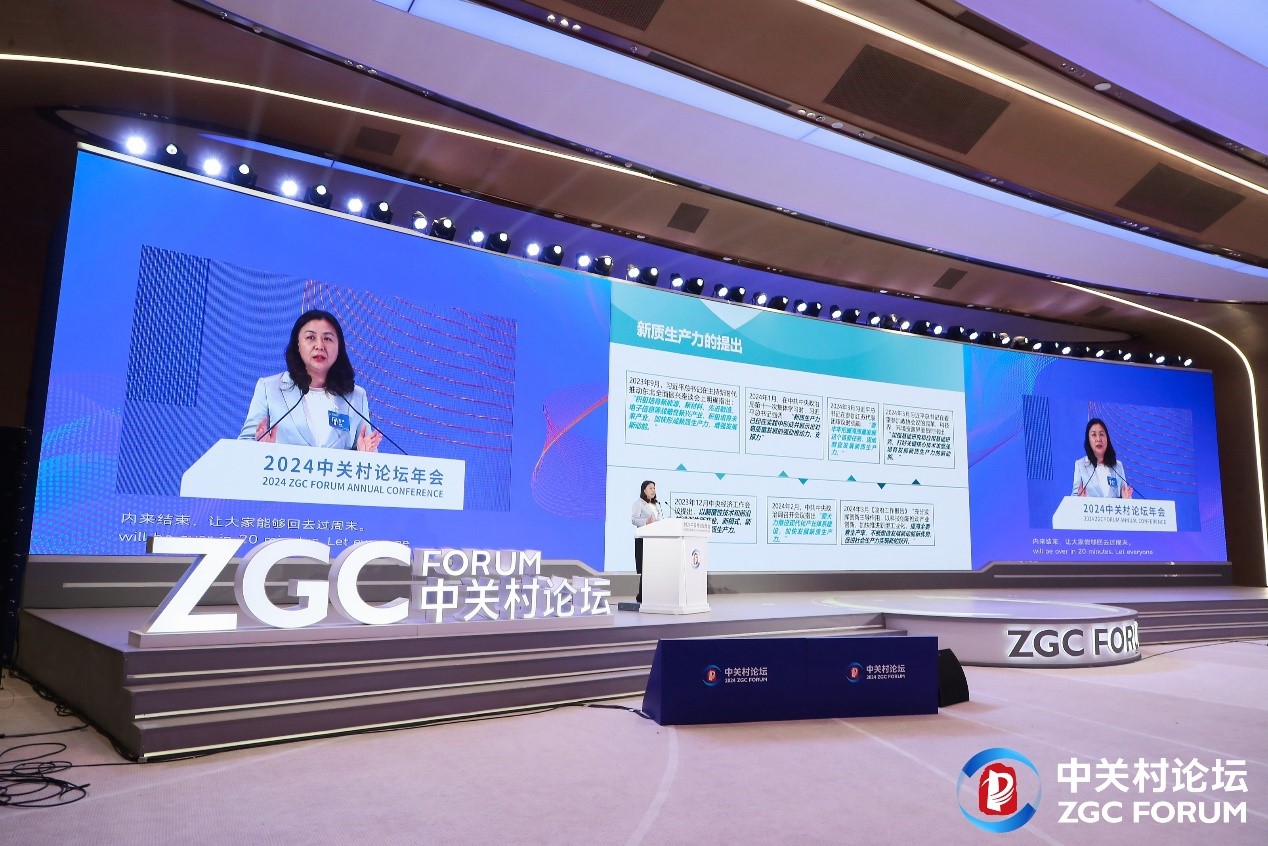
Centered around the theme “Empowering New Quality Personnel to Drive New Quality Productive Forces”, Xu Fang presented cutting-edge research findings from five aspects: the theoretical logic of empowering new quality personnel to drive the New Forces, team cultivation, effective personnel allocation, innovation stimulation, and the construction of a personnel ecosystem.
Xu noted that the New Forces is characterized by high technology, high efficiency, and high quality. Its new quality lies in the essence of technological innovation, digital technology, personnel quality, and the pursuit of green and sustainable development. These innovative “top-tier” personnel are the originators and key drivers for social progress and high-quality development in the era of digital intelligence.
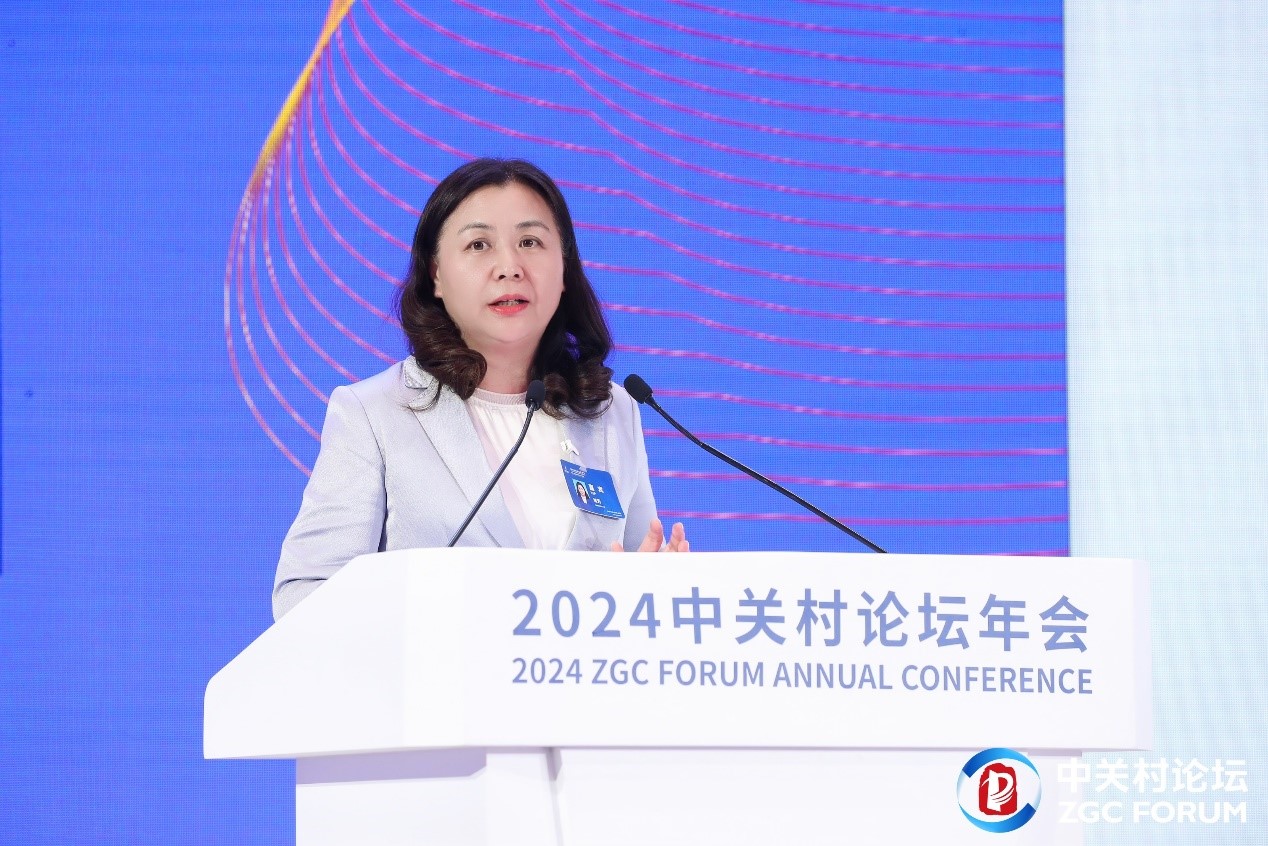
Drawing from previous research by CUEB and extensive international and domestic cases and data, Xu analyzed personnel composition, important characteristics, typical representatives, as well as the key role of the personnel in the development of the New Forces. She proposed measures to empower personnel to drive the new forces:
• Introducing more personnel with application-oriented expertise of strategic importance and core technologies in key fields.
• Accelerating the construction of innovation hubs and personnel highlands based on personnel flow and agglomeration, and promote their rational allocation among regions, strategic emerging industries and future-oriented industries.
• Achieving deep integration of chains of personnel, industry, capital, and innovation through policy guidance, market leadership, and community interaction.
• Establishing sound personnel guarantee and incentive mechanisms to unleash talent dividends.
• Building a personnel innovation ecosystem and fostering a “wisdom circle” for revolutionary technologies.
Xu believes that these measures would accelerate high-level technological self-reliance, paving the way for original and disruptive technological innovations that fuel the New Forces.
Quoting General Secretary Xi Jinping’s remarks on the 110th anniversary of the Western Returned Scholars Association that the Association is “a talent pool for overseas students to serve China, a think tank for suggestions, and the fresh activists for people-to-people diplomacy”, Xu urged more overseas personnel to return to China, contributing to the nation’s development and making Beijing a benchmark city for New Forces.
During the forum, distinguished experts from governments, academia, and enterprises, deliberated on the high-quality development of the capital and accelerating the formation of new forces, discussing strategies to pool global personnel, invigorate technological innovation and the New Forces in the capital. The forum encompassed keynote speeches, a signing ceremony, project releases, and more.
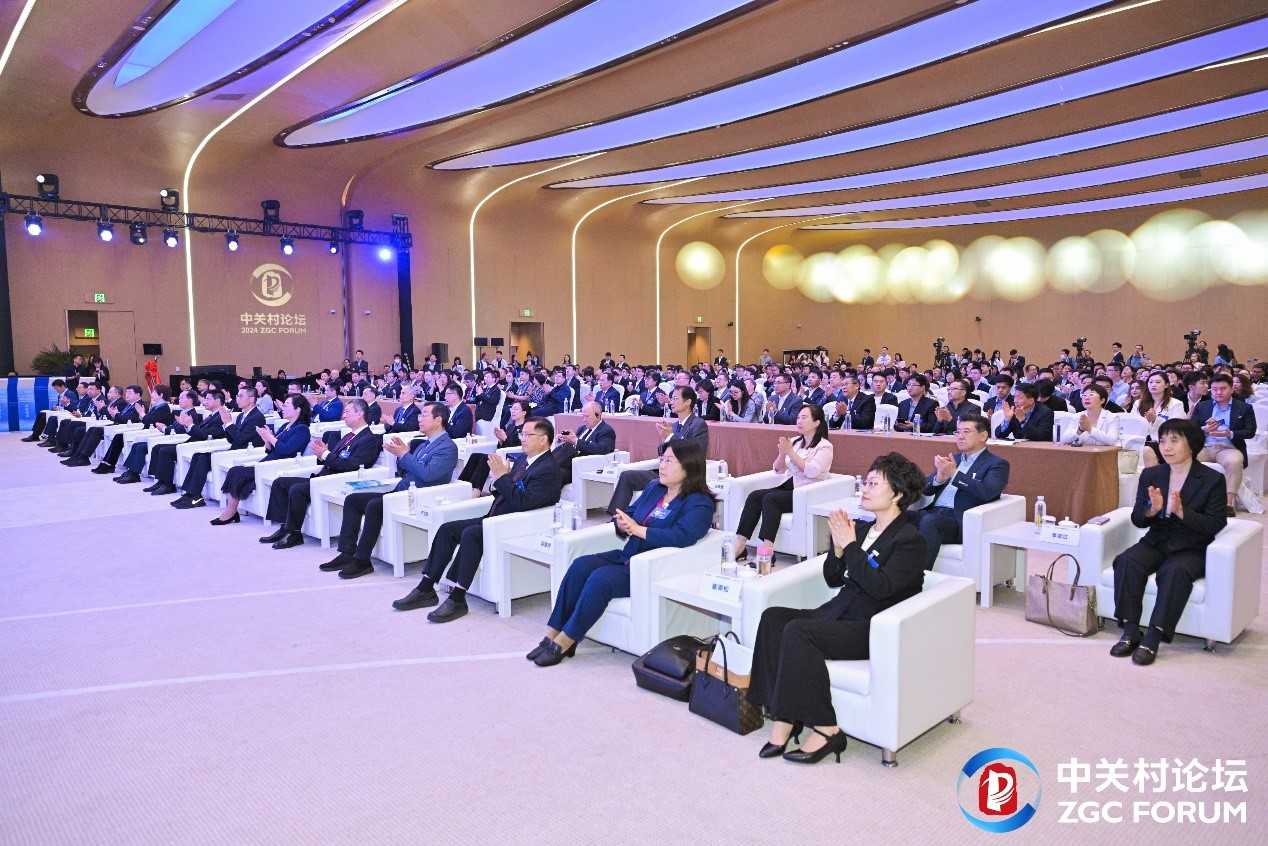
The unveiling ceremony of the “International Talent Hub” was held during the forum. This pioneering project in Beijing, integrating government affairs, culture, ecology and market elements, will settle in the south-central axis area of Fengtai District, aiming to attract more overseas students back to China. The research team from School of Labor Economics at CUEB participated in the project, providing valuable insights.
Notable experts and scholars both at home and abroad delivered keynote speeches. Among them were Duan Huiling, academician of the Chinese Academy of Sciences and Dean of the School of Engineering of Peking University, Economist David Garland Blair, Deputy Director of the Center for China and Globalization (CCG), and Cui Jisong, Co-founder, Chairman, and CEO of INNOCARE.
Over 400 people attended the forum, including leaders from relevant central government departments and Beijing municipal and district-level authorities, top scientists, and academicians from across the globe, representatives of international organizations, leaders of Students’ Federations of overseas universities, representatives from Beijing, Tianjin, and Hebei Western Returned Scholars Associations, western returned entrepreneurs. Attendees from CUEB included He Qin, Secretary of CUEB Party Committee of the School of Labor Economics, along with members of the School’s innovative personnel research team, such as Miao Rentao, Chen Shujie, Yang Xuhua, Yang Zhixu, PhD students Wang Fushi and Li Bingyuan, as well as staff from the CUEB Party Committee Publicity Department (News Center).
